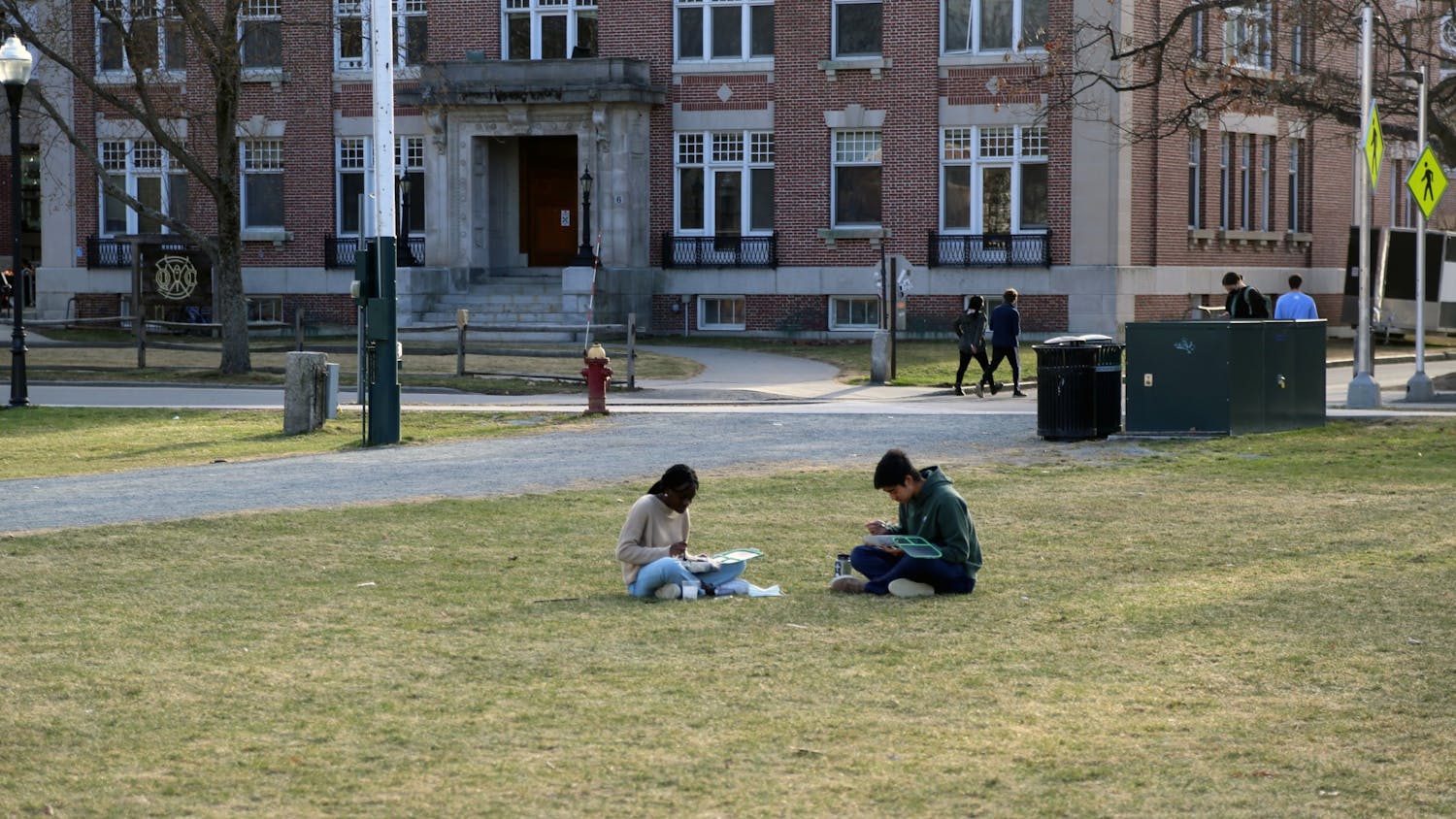With the United States achieving universal COVID-19 vaccine availability for adults as of April 19 and Dartmouth recently deciding to mandate the vaccine for all students on campus in the fall, a return to normalcy seems to be on the horizon. In light of the recent progress, it’s fair to say that students are looking forward to in-person classes and social activities with minimal risk of catching or spreading COVID-19.
But while students and the administration both hope to protect the Dartmouth “bubble” against COVID-19, vulnerabilities still exist. Most alarming is that Dartmouth staff and faculty members are not required to get the COVID-19 vaccine. Allowing unvaccinated faculty and staff to return to campus jeopardizes the entire community in much the same way that allowing unvaccinated students to return would. If the College expects to mitigate the risk of COVID-19 this fall, it must require its faculty and staff to take the same precautionary measures as its students and get the vaccine before “normal” can begin.
Let’s remember how students interacted with staff and faculty pre-pandemic: Professors held office hours in their small, often poorly ventilated offices. Custodians and dorm residents frequently crossed paths in bathrooms, hallways and stairwells. Students formed close bonds with Dartmouth Dining Services staff at The Class of 1953 Commons, Collis Cafe and Courtyard Cafe — spaces where, even in the pandemic, physical distance is hard to manage.
Each of these situations and countless others put students in close contact with staff and faculty. This wouldn’t be cause for concern if everyone was vaccinated. However, while all students will be vaccinated come fall, the same won’t be true of staff and faculty. Importantly, staff and faculty members interact with more individuals outside Dartmouth’s bubble — like their family, neighbors and residents of surrounding towns — than students do, meaning that College employees likely have more potential contact with potentially COVID-19-positive people. Yes, the vaccines are highly effective, so it’s unlikely that a vaccinated student will get the virus from an unvaccinated faculty or staff member. However, we don’t yet know how long the vaccine protects against COVID-19. For instance, Pfizer’s CEO has announced the company’s expectations that the general public will likely need a booster shot within 12 months. Considering that many students are getting vaccinated this spring, there’s a chance that students will be less immune to the virus fall term than they are now. This puts the student population at risk of yet another large-scale COVID-19 outbreak like the ones seen on campus this past fall and winter.
Even if we assume that no faculty or staff members will infect students, having any sort of significant spread of COVID-19 among faculty and staff would decimate our already fragile campus. Assuming that classes will be mostly in-person come fall, professors may not prepare for the possibility that their classes might have to be temporarily remote due to COVID-19. If such an outbreak among professors were to occur, a mad scramble to push courses online might ensue, mirroring what took place in March 2020. While many professors have more remote resources now compared to last spring, professors with new classes or out-of-date content and lesson plans would still struggle to bring their courses online. What’s more, if an outbreak occurs among unvaccinated staff whose jobs are critical to the College’s infrastructure, such as dining and custodial staff, the resulting logistical nightmare would certainly threaten campus operations.
To be fair, many faculty and staff members will get the vaccine without a mandate, if they haven’t already. As of Monday, the dashboard shows that, out of 4,434 total faculty and staff members, a total of 946 — or about 21.3% — have reported their vaccination status to the College. Right now, it’s encouraging that this figure is in line with the roughly 21.7% of undergraduate and graduate students who have shared their vaccination status. However, this divide is bound to grow in the near future as enforcement of the vaccine requirement divides students and staff/faculty into two groups: those required to get the vaccine, and those who are in the broader general population — one that, nationally, is facing stagnating vaccination rates.
It is likely that, as is the case with the general public, a significant bloc of Dartmouth’s employees will opt not to get the jab because of vaccine hesitancy. Therefore, simply requiring the vaccine might feel like an authoritarian approach to many staff and faculty members because it would force them to choose between losing their job or facing whatever consequences they believe may arise from getting the vaccine. That said, Dartmouth should not shrug its shoulders and give up on vaccinating reluctant employees before it starts trying. Instead, along with requiring the vaccine for faculty and staff and providing incentives for them to do so, Dartmouth must also educate its employees and address vaccine hesitancy head-on.
Dartmouth has embraced the principle of community throughout the past year, and we are too close to winning the fight against COVID-19 to give up on this approach now. If the College expects to cultivate any sense of normalcy come fall, it is the College’s responsibility to do everything in its power to protect everyone against the spread of COVID-19 by implementing and enforcing a universal vaccine requirement. If the COVID-19 Task Force ignores this truth, they risk putting our community in harm’s way.



